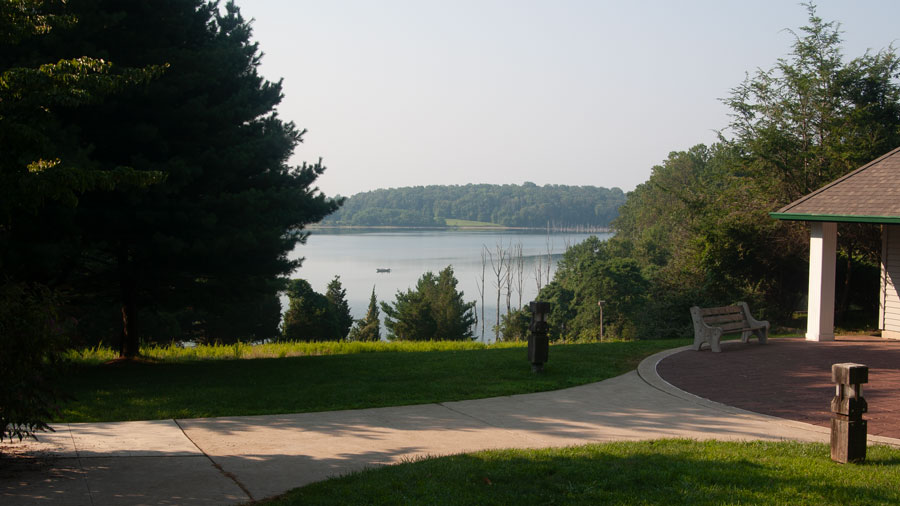
Have you ever thought about having fun while also serving the environment? It can be done with little fanfare and effort during a trip to Merrill Creek Reservoir and Environmental Preserve in Warren County. Visitors have the chance to help in environmental studies by merely carrying a turtle or lending a fish on the end of your hook.
Of course, your main reason for visiting would be to enjoy the exceptional outdoor resources and breathtaking panoramas from the top of Montana Mountain, high above Route 57 in Harmony Township. For those unfamiliar with Merrill Creek, the 650-acre reservoir was constructed to store water for release to the Delaware River during periods of low flow. Since it opened in May of 1989 the area has become a popular destination for outdoor lovers. Some 2,000 acres of forests and fields provide the opportunity for nature study and hiking, while the lake, with more than five miles of shoreline, lends itself to fishing and boating.
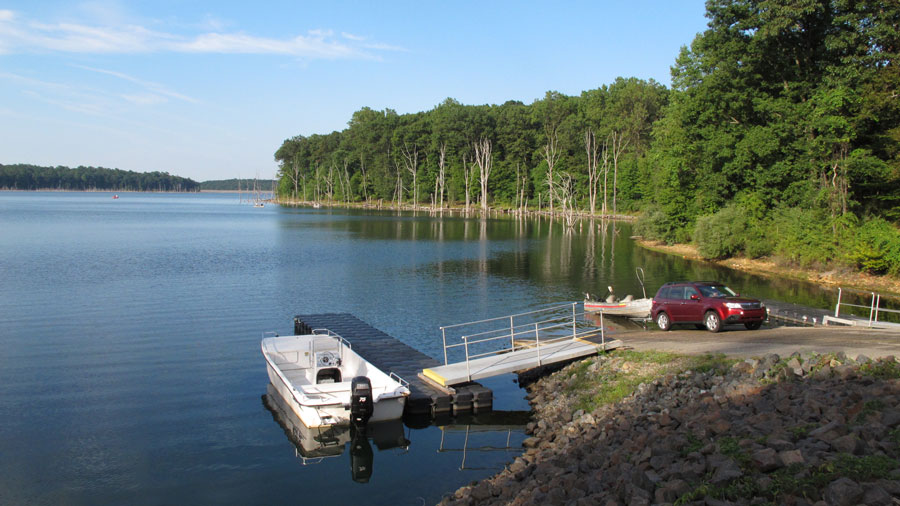
There are fascinating nature displays within a Visitor's Center that features auditorium facilities, exhibits and computerized teachings and games, one of which offers you the chance to build your own bird! Yet, Merrill Creek is more than just another pretty face on the map; and more than just a trough that quenches the Delaware's thirst. Thanks to the efforts of former staff naturalists Jane Bullis and James Mershon, it is a leading activist in environmental management, which has become increasingly important as developers continue to shrink our open space.
"There's more to Merrill Creek than meets the eye," Bullis said. "Yes, it's a beautiful setting with open space and hiking trails and boaters. But there is functional environmental managing going on behind the scenes. We're looking at it from the standpoint that Merrill Creek is forever preserved. This is open space and a prime area for environmental research to take place, and it's a great research station.

"We can aid in the research that's going on in other parts of the country with some of the different species we're working with. Hopefully, the information that's gained from our studies can work in conjunction with other efforts. They can develop environmental management plans on how to best protect areas, especially with open space being such a key issue these days." The Environmental Management programs are to sustain and enhance the ecology of the area. Included in the plan are measures to maintain and enhance a variety of wildlife habitats, as well as protect endangered species. The plan has been implemented by the Merrill Creek Owners Group, which consists of seven electric utilities along the Delaware.
"Although you don't hear much about environmental friendly utility companies," Bullis said, "these utility companies are a key piece to the whole thing. They are really making this work by allowing us to do these things." One of the programs includes monitoring the growth rate of the fish that are stocked in the reservoir. Each fish is fin-clipped to monitor the tracking. If you decide to cast a line into the reservoir and are lucky enough to bring back a haul, you are then a candidate for what is known as a Creel Census.
At the boat ramp, attendants log the boats in and out so they know how long the fisherman has been out there, what kind of bait they were using, what fish species they were targeting and what they captured.
"We can get an incredible amount of information from one fisherman coming in from the catch they have. To supplement that, the boat attendants will take the stomachs from the fish, put them in a jar and send them to our fishery consultants to analyze in the lab and see what the fish have been feeding on. So, the fishermen are actually part of the research that's going on here."
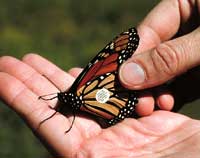
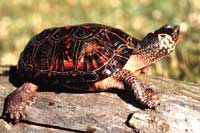
The process is done for the overall health and function of the fisheries that are being developed at Merrill Creek. Since the reservoir's origin was that of an empty bowl that was filled with Delaware River water, and then stocked, the naturalists are trying to make sure the habitat will enable the fish to grow at a sensible rate.
Brook trout surveys are also done, as electric shockers pass current through the water. While the fish are temporarily stunned, they are measured and returned to the water in order to chart the growth. Visitors can also help with endangered species, such as the Bog and Wood turtles. If you happen to find a turtle during one of your hikes or nature walks, please report your discovery to the visitor's center, where the naturalists can go to work.
"These turtles were found on the property prior to construction," Bullis said. "The Bog turtles had to be researched, we're following them with radio transmitters that we glue to their shells to follow their movements. And with any turtle we find, we also notch them as a way to identify them if we ever capture them again. It's a way of tracking the population." There are some other sights one might stumble upon that might seem strange, but they are all in the name of environmental management. If you see what looks like volleyball nets hanging from trees, they are mist nets designed to capture birds that are coming in to feed or nest. The birds are then banded for life so that naturalists may track their movements.
The staff also works in cooperation with the New Jersey Division of Fish and Wildlife to monitor black bear activity at the Preserve. Fur samples are collected and sent to state laboratories who then conduct DNA studies.
And in some instances, visitors can be involved as well.
Photos courtesy Merrill Creek Reservoir and Environmental
Preserve.
For more information please call 908-454-1213 or visit their website.
The Centenary Stage Company produces professional equity theatre and also a wide variety of top-flight musical and dance events throughout the year.
Consider Rutherfurd Hall as refuge and sanctuary in similar ways now, as it served a distinguished family a hundred years ago.
Millbrook Village, part of the Delaware Water Gap National Recreation Area, is a re-created community of the 1800s where aspects of pioneer life are exhibited and occasionally demonstrated by skilled and dedicated docents throughout the village
Choose and Cut from 10,000 trees! Blue Spruce, Norway Spruce, White Pine, Scotch Pine Fraser Fir, Canaan fir, Douglas Fir. Family run on preserved farmland. Open Nov 29 - Dec 23, Tues-Sunday, 9-4. Easy Access from Routes 78 or 80.
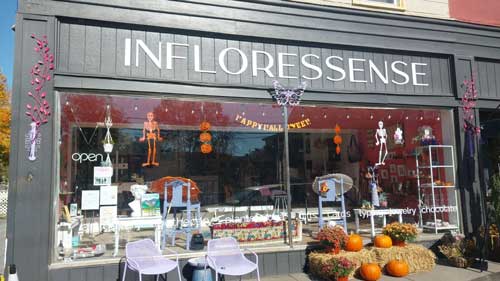
A fine art gallery like no other! Unique, handmade gifts and cards as well as yoga, meditation, and continued learning lectures. Come in Saturdays for all-day open mic and Sundays to try unique nootropic chocolate or mushroom coffee. Browse the $5 books in the Believe Book Nook while you nibble and sip.